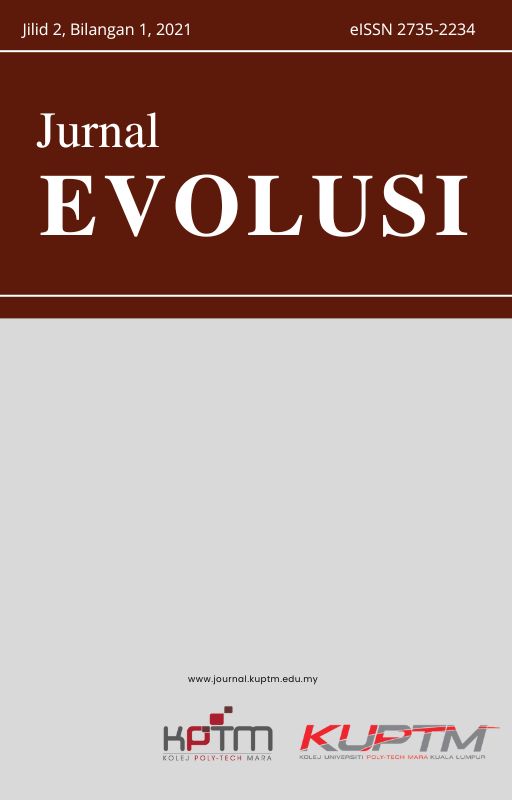The preliminary study: beauty standards on social media and body dissatisfaction
DOI:
https://doi.org/10.61688/jev.v2i1.24Keywords:
Peer Evaluation, Social Comparison, Body Dissatisfaction, Internalisation, Social MediaAbstract
Media bertanggungjawab untuk menggambarkan standard kecantikan yang mempengaruhi lelaki dan wanita. Ciri-ciri media sosial menggambarkan pedang bermata dua yang akan mempengaruhi tingkah laku manusia sama ada secara positif atau negatif. Banyak media sosial dilengkapi dengan pelbagai penapis untuk memenuhi standard kecantikan seperti yang dipaparkan dalam media. Ahli masyarakat yang melihat standard kecantikan pada tahap yang melampau mesti menggunakan penapis sebelum menyiarkan gambar mereka dalam talian. Bagaimanapun, dalam kehidupan sebenar, mereka akan membelanjakan banyak wang untuk pembetulan estetik dan gimnasium untuk memenuhi standard kecantikan yang ditetapkan oleh media. Pengkaji telah menjalankan ujian pra ke atas 100 orang responden untuk memastikan kebolehpercayaan instrumen sebelum pengumpulan data sebenar. Ujian kebolehpercayaan menunjukkan nilai 0.716 menunjukkan instrumen boleh dipercayai untuk pengumpulan data sedia ada. Kesahan item disahkan melalui penilaian kesahan kandungan dengan pakar kandungan. Kajian ini juga menjalankan pra-analisis untuk menentukan keputusan yang mungkin bagi pengumpulan data sebenar. Dapatan pra-analisis menunjukkan bahawa internalisasi dan pengaruh rakan sebaya merupakan faktor yang mempengaruhi persepsi responden terhadap ketidakpuasan badan. Dapatan pra-analisis bercanggah sedikit dengan hipotesis yang dicadangkan. Justeru, kajian menjangkakan bagi pengumpulan data sebenar, dapatan akan menunjukkan keputusan yang berbeza daripada dapatan pra-analisis.
The media is responsible for portraying beauty standards that influence both men and women. Social media features depict a double-edged sword that would influence human behaviour either positively or negatively. Many social media are equipped with various filters to meet the beauty standards as shown in the media. Society members who perceive beauty standards at the extreme level must use a filter before posting their pictures online. However, in a real-life, they would spend a fortune on aesthetic correction and gymnasium to meet the beauty standard set by the media. The researcher conducted a pre-test on 100 respondents to ensure the instrument's reliability before the actual data collection. The reliability test indicated a value of 0.716 showing that the instrument is reliable for the existing data collection. The item's validity is confirmed via content validity assessment with the content expert. The study also conducted a pre-analysis to determine the possible result for the actual data collection. The pre-analysis finding indicated that internalisation and peer influence are the factors to influence respondents’ perceptions of body dissatisfaction. The pre-analysis finding is slightly contradicted by the suggested hypotheses. Thus, the study expects that for the actual data collection, the finding would show different results from the pre-analysis finding.
Downloads

Downloads
Published
How to Cite
Issue
Section
License
Copyright (c) 2022 Jurnal Evolusi : Keusahawanan & Sains Social

This work is licensed under a Creative Commons Attribution 4.0 International License.












